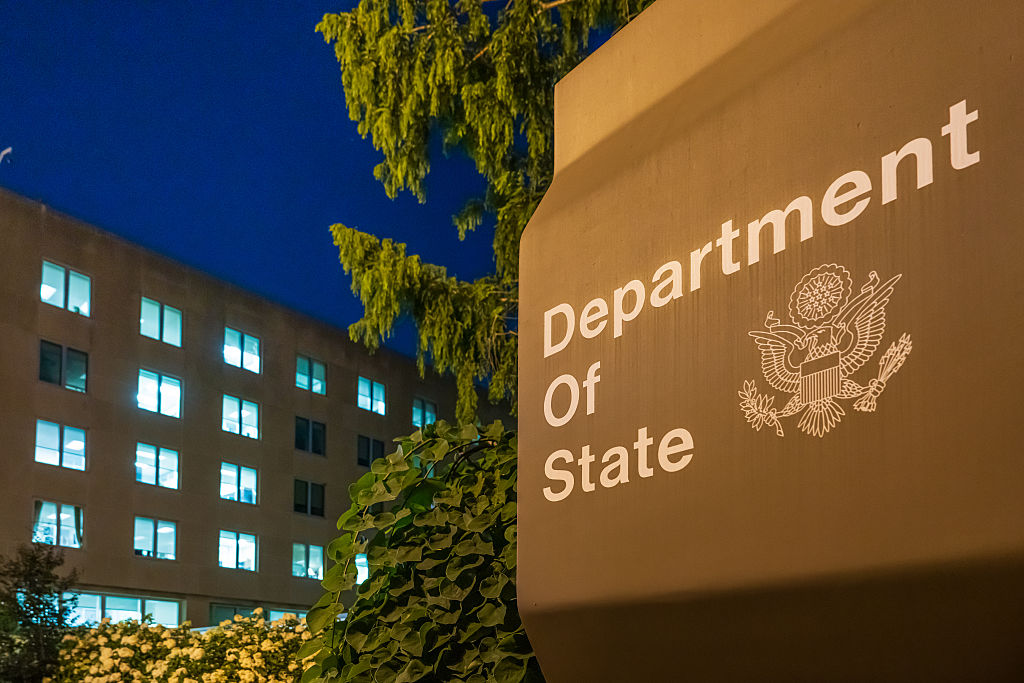Trump Administration Confirms Visa Revocations for Six Foreigners Who ‘Celebrated’ Charlie Kirk’s Death Online

In what many view as another curtailment of free speech in the U.S., the Trump Administration stated Tuesday it has cancelled the visas of six foreign citizens because of comments they shared online after the .
In , the State Department asserted that the U.S. “bears no responsibility to host foreign nationals who desire harm upon Americans” and that it had located visa holders who “applauded” Kirk’s demise. The online exchange displayed the relevant social media posts or statements, with the users’ identities withheld and designated solely by their countries of origin, succeeded by “Visa revoked.”
As per the online exchange, an Argentine citizen stated Kirk “deserved” eternal damnation, a Mexican citizen remarked “there are individuals whose demise would improve the world,” and a Brazilian citizen declared Kirk “EXPIRED TOO LATE.” Additional instances included remarks from a South African, a German, and a Paraguayan. It is not clear whether these visa holders were physically present in the U.S. when their visas were rescinded.
The disclosure of the visa revocations followed closely after President Donald Trump , the United States’ paramount civilian accolade, at the White House on Tuesday.
This action comes after Deputy Secretary of State Christopher Landau’s the day following Kirk’s death last month, where he stated he was “appalled to observe certain individuals on social media commending, vindicating, or downplaying the occurrence” and implored the public to “bring such remarks made by foreign persons to my notice” so that U.S. consular authorities could “implement fitting responses.”
“This situation transcends Charlie Kirk,” Secretary Marco Rubio . “ If you are a foreign national publicly acclaiming the assassination of someone who was delivering a speech, truly, we do not wish for you to be in the country. Why would we want to issue a visa to an individual who believes it is acceptable for someone to be killed in a public setting? To me, that is simply logical.”
Kirk was at a university in Utah on September 10, and the Trump Administration and conservative political figures swiftly .
Vice President J.D. Vance prompted people to report anyone celebrating Kirk’s passing: “Identify them publicly, and frankly, inform their employer.” Individuals like were , and late-night television host Jimmy Kimmel’s program was taken .
Critics have categorized these measures as an infringement on free speech—a peculiar development from an Administration that pledged to uphold free speech. Trump himself upon assuming office for his second term, which deemed government censorship “unacceptable,” precluding federal employees from “behavior that would unconstitutionally restrict the free speech of any American citizen.” And Rubio remarked in May that freedom of speech differentiates the U.S. “as a global exemplar of freedom,” just as the State Department then on foreign nationals who “suppress Americans,” including through social media content.
Overseeing Social Media
The Trump Administration has progressively scrutinized individuals’ social media engagements, encompassing both governmental and non-governmental spheres.
were investigated regarding online posts connected to Kirk. Three employees were “in the process of either being discharged from or departing the military,” as reported by the Washington Post earlier this month. A and were additionally placed on leave after making comments about Kirk last month.
The Trump Administration has also utilized social media checks within immigration procedures.
A signed by Rubio and dispatched to offices in June stipulated that individuals seeking U.S. student visas must render their social media accounts public for official review, allowing assessment of whether they “display adversarial dispositions toward our citizens, culture, government, institutions, or founding principles; who endorse, assist, or support designated foreign terrorists and other threats to U.S. national security; or who commit illegal antisemitic harassment or violence.” This endeavor emerged after an increase in pro-Palestinian activism at U.S. universities, which the Trump Administration characterized as antisemitic. The State Department previously employed AI to scan student visa-holders’ social media for “pro-Hamas” engagement as part of a reported .
U.S. Citizenship and Immigration Services also in processing immigration applications, aiming to identify supposed “anti-Americanism” and “antisemitic beliefs.”
Simultaneously, the Administration has pressured technology companies to eliminate activities that impede its objectives. Following a request from the Justice Department, Apple that would permit online social collectives to monitor the whereabouts of ICE officials. And Attorney General Pam Bondi that, upon solicitation, Facebook deactivated a group page that was “being employed to expose and target” ICE agents in Chicago; Meta affirmed in that it took down the group for “contravening our policies against coordinated harm.”
Concerns Regarding Free Speech
By August, upwards of 6,000 student visas had been rescinded since January—a small number of which were due to supposed “support for terrorism.”
The U.S. also South Africa’s ambassador Ebrahim Rasool in March following of spearheading a supremacist organization. And the State Department after they urged for the demise of Israel’s military—a U.S. confederate—during a performance in the U.K. in June.
The Trump Administration has asserted that safeguarded speech and beliefs are not the causes for visa cancellations or the implementation of immigration policy, but rather that national security concerns are paramount. Nonetheless, such stringent actions have provoked debate over whether non-citizens within the U.S. are afforded the identical First Amendment protections as citizens.
A court decision on September 30 brought clarity to free speech matters, after various university groups initiated legal action against the Trump Administration for purportedly targeting non-U.S. citizens for removal solely for expressing support for Palestinians and critiquing Israel. The presiding judge concluded that detaining and deporting non-citizen students for such motives infringed upon the First Amendment.
“This legal proceeding—possibly the most critical ever to fall within the purview of this district court—directly poses the question of whether non-citizens lawfully residing in the United States truly possess the identical free speech rights as the broader populace,” U.S. District Judge William Young, a nominee of former Republican President Ronald Reagan, . “The Court unequivocally answers this Constitutional query with ‘yes, they do.’”